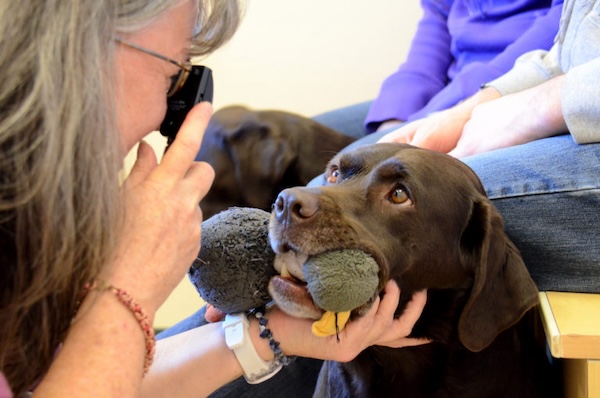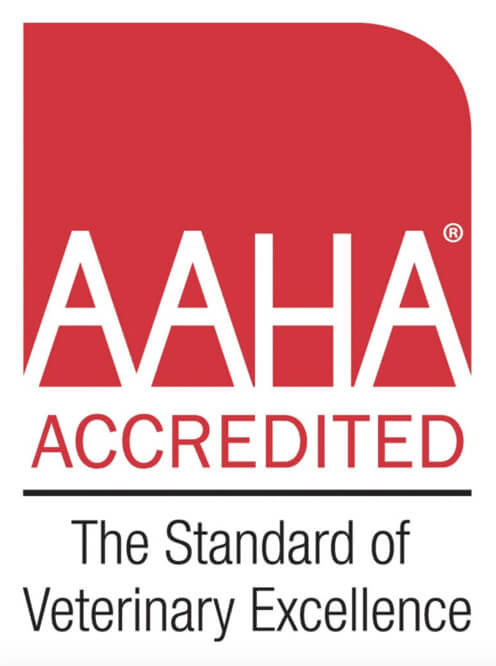Because your pet can’t always tell you when he or she is sick, it is very important that your pet receive wellness exams and diagnostic tests throughout his or her life. A comprehensive examination by our veterinarians, combined with age appropriate diagnostic tests, provides you with a good understanding of your pet’s health both inside and out. It sets a baseline of health early on and establishes a history of well-being that can be referenced as your pet ages.
Pets age much faster than we do. This makes annual wellness exams very important to help detect problems like dental disease, kidney or liver problems, underlying ear infections, or other hidden issues before they become larger disorders. We recommend that if your pet is younger than seven years of age an in-depth wellness exam be performed at least once per year. After seven years, we recommend exams twice a year.
During your dog’s or cat’s annual wellness exam our veterinarians and certified veterinary technicians will design an individualized health plan for your pet based on:

- A comprehensive physical exam
- Specialized blood and diagnostic tests
- A dental health evaluation
- Internal parasite tests
- Life style and exposure risk assessments to determine individualized vaccine recommendations
- Pain assessments
- Weight and nutrition assessments
Our medical team will also be there to answer any questions you may have about your companion and help you understand your pet’s specific health needs.
Accidents and illness
Even the healthiest, best cared for pet can become sick or injured. Signs of illness in pets include:
- Vomiting or diarrhea
- Limping
- Changes in behavior
- Aggression in a pet that is normally not aggressive
- Changes in urination habits, straining to urinate, frequent urination
- Loss of housetraining, not using the litter box
- Changes in bowel movements or stool consistency, straining to defecate
- Excess drooling
- Excess shedding, bald spots or loss of hair
- Itching
- Crying or anxiety
- Increased or decreased affection for family or other pets
- Hiding or other changes in behavior or routine
- Weight loss or weight gain
- Shaking the head
- Licking obsessively at one spot
- Lack of grooming in cats
- Discharge from eyes or nose
- Excess panting or labored breathing
- Inability to keep up on walks, or not wanting to play
- Changes in appetite or water consumption
Should you see any of these symptoms, call us for an appointment.

